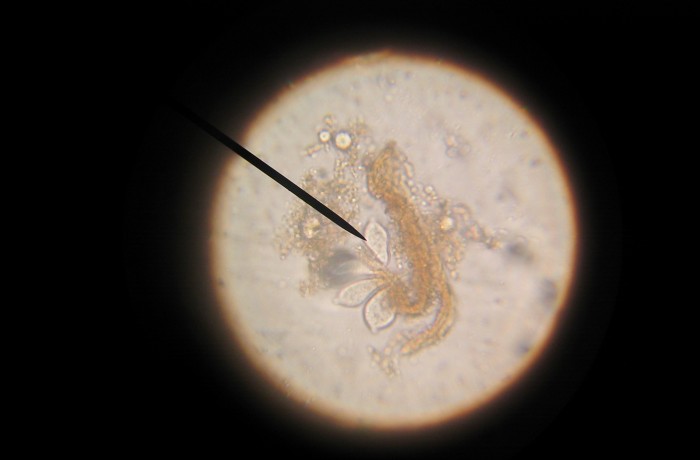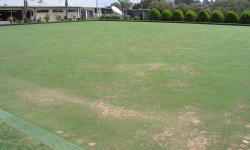Over the past 50 years much of the effort in plant protection, fertilisation and soil amelioration on larger land tracts has been focussed on chemical methods. Pesticides, fungicides, fertilisers and soil wetters have been the mainstay of the horticulturist and some of these substances have serious side effects to plants, pets and land managers.
Research into soil and plant microbiology has been uncovering startling insights into the life above and below the soil that is invisible to the naked eye. Many of the reactions between key groups of microbes are vital to the ongoing health and well being of our farms and if these microbes are nurtured and bolstered with a few simple techniques there can be a massive increase in plant and soil health. Conversely excessive use of chemicals will in time weaken and sterilise the farm and disrupt is natural ability to defend itself from disease, pests and climatic fluctuations. Offering sustainable plant nutrition and soil care programs that work. The team at Agrisense will work with you to develop a balanced approach with experienced Horticultural and Soil Management Services.
Intensive management of any soil takes its toll on the abundant population of beneficial soil organisms. Biodiversity and actual biomass declines and soil structure is badly affected by repeated management interventions. Pore spaces reduce with an attendant reduction of gaseous exchange, valuable organic carbon is oxidised and compaction begins to increase. As a result of this process, soils become anaerobic, susceptible to erosion and favour the dominance of pathogens in the feeble biosphere that remains. Water loss through runoff and gravitational losses increase and nutrients are lost with the water. The crop under management expends more vital energy just trying to maintain its normal functions.
Modern soil science is experiencing a profound new influx of helpful information about the nature of soil ecology that will yield many answers enabling industry to address the causes of soil problems and work toward achieving sustained improvement. AgriSense products help you to begin working on the causes underlying soil decline, by rehabilitating and restoring the soil’s biological diversity.
Microbal AssociationsLiquid Composts and composts.
Microbes are crucial to soil health. Bacteria, fungi. protozoans and beneficial nematodes all combine to create the Soil Foodweb, the critical interaction of life in the soil that nourishes and protects plants while it improves soil structure and reduces erosion. The main functional groups of soil microbes are as follows:
Bacteria fix nitrogen, attack and consume some fungal diseases, denature toxins, stick microscopic soil particles together and provide food for other important soil and leaf organisms. Fungi organise soil structure, improve water holding capacity, drainage, reduce soil compaction, consume thatch and dramatically reduce leaching. Fungi also associate with root systems to help with uptake of nutrients and trap and feed on some disease causing organisms.
Protozoans feed on bacteria, both harmful and beneficial, leaving plant available nutrients in the root zone after taking the carbon they require. Beneficial Nematodes feed on bacteria, fungi, and protozoans as well as pathogenic fungi and contribute significantly to nutrient uptake and soil health.
The best composts are highly diverse in their microbial populations and have high concentrations of beneficial organisms. A good compost will inoculate the soil with billions of dynamic organisms providing an ongoing source of nourishment. Pathogens are dislodged, predated and inhibited by a vast host that will inevitably out compete them for space in the soil profile. Consequently, crops grown with composts will eventually out produce those that are not and require less nutrient supplementation, protective interventions and water for a superior quality and quantity of crop return.
Compost is one of the most potent tools available to begin restoring worn out soil. Put simply compost is organic matter populated by certain aerobically grown organisms. As these organisms grow they release metabolic heat and useful by-products. These organisms rely on the right particle size, temperature, moisture and oxygen level to grow into a richly diverse community. These factors also influence the makeup of the community determining whether it is a bacterial or fungal dominated compost. Good compost will:
• Stimulate root growth • Optimise crop health, yields & returns • Provide natural protection from disease • Breakdown salts & chemical residues • Increase Cation Exchange (CEC) & pH buffering
• Reduce foliar & soil disease pressure • Improve soil structure & reduce compaction • Increase nutrient cycling & retention • Enhance moisture infiltration & retention AgriSense Liquid Compost is an actively aerated biological liquid, containing an enormous number and diversity of beneficial organisms, it combines a number of natural products (including kelps, fish products, and organic acids) to maximise its biological potency. In addition to its biological properties AgriSense Liquid Compost introduces a range of plant growth hormones and enzymes to encourage plant growth, and provides a broad range of trace minerals. It provides a preventative approach to managing soil and plant diseases, saving the land manager money and reducing resistance caused by the overuse of agricultural chemicals.
 2/16 Bayldon Dr Raleigh NSW 2454
2/16 Bayldon Dr Raleigh NSW 2454
 0409185680
0409185680



